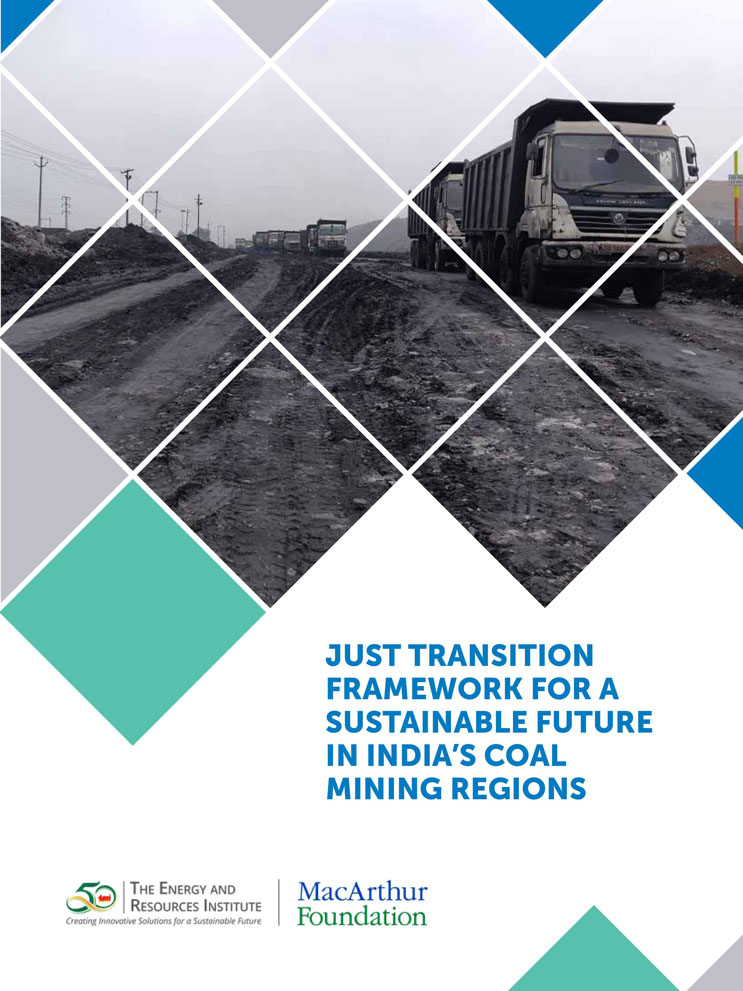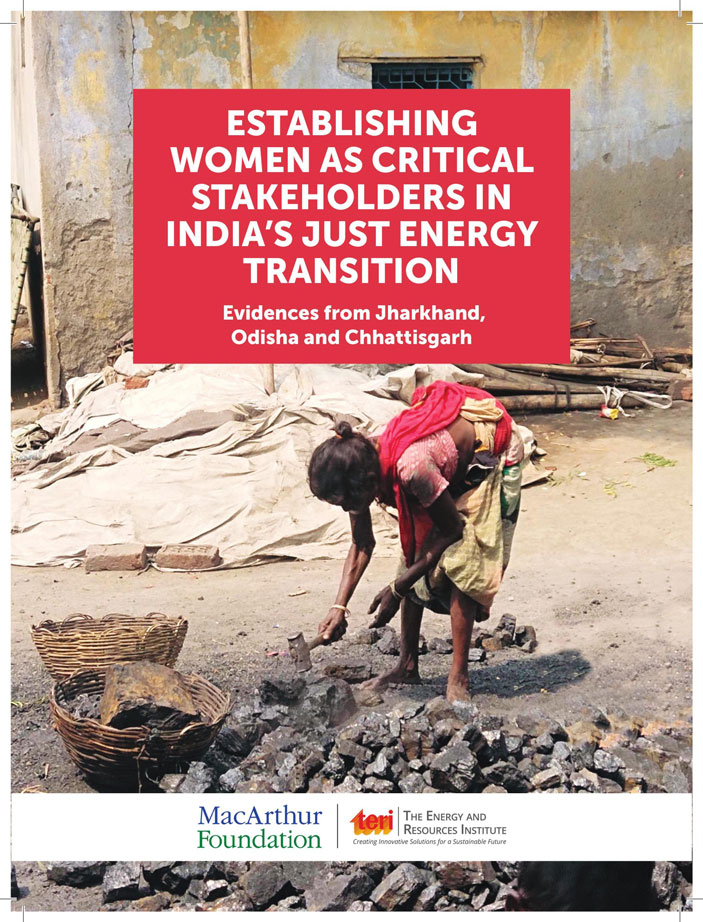Understanding the Implication of Coal Transition: The Scenario in Chhattisgarh, Jharkhand, and Odisha
India's pledge to attain net-zero emissions by 2070 significantly impacts coal-reliant people, especially in the states of Chhattisgarh, Jharkhand, and Odisha. The report "Understanding the Implication of Coal Transition" analyses the socio-economic vulnerabilities resulting from coal mine closures and the ensuing reduction in coal-dependent lifestyles. The study, conducted by The Energy and Resources Institute (TERI) wi...
Just transition framework for a sustainable future in india’s coal mining regions
As the world grapples with the pressing challenges of climate change, there's an increasing emphasis on transitioning from fossil fuels to sustainable energy sources. India being one of the largest producers of coal - a significant contributor to global carbon emissions - stands at the forefront of this transition. India's Unique Position: India, with its vast coal reserves and a significant portion of its energy derived from ...
ESTABLISHING WOMEN AS CRITICAL STAKEHOLDERS IN INDIA’S JUST ENERGY TRANSITION Evidences from Jharkhand, Odisha and Chhattisgarh
Coal continues to remain the mainstay of India’s energy portfolio mix. The climate change considerations and the increasing competitiveness of cleaner sources of energy are likely to increase the momentum of the transition towards non-fossil fuel-based sources. According to an estimate, this move would impact approximately 13 million people who are dependent on coal either directly or indirectly for a livelihood. Women form only 6.7% of the ...




